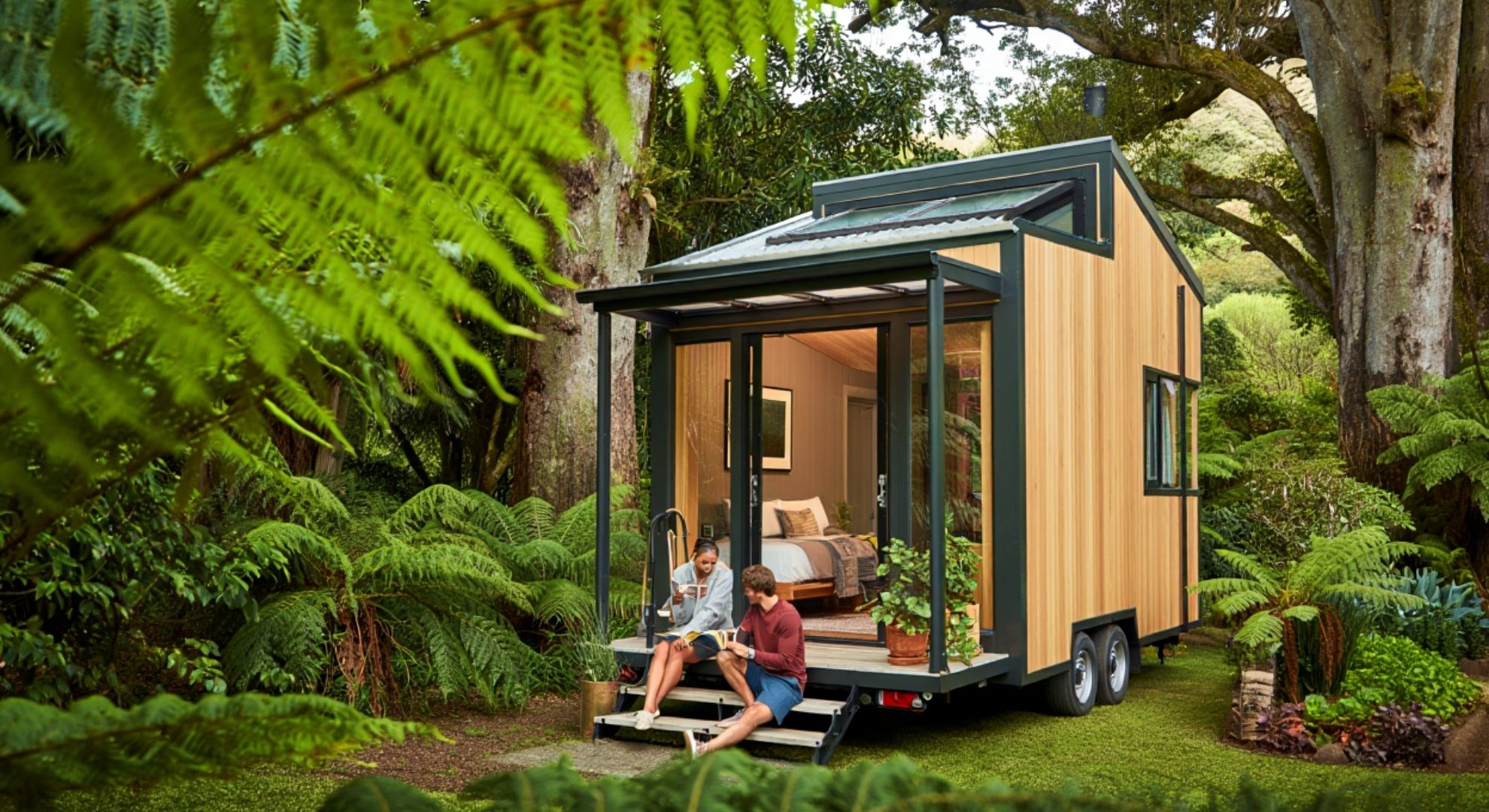For years, life in Auckland meant long commutes, high rent, and little time to breathe. But for one couple, the constant pressure became too much. Their solution wasn’t a bigger house or a new suburb — it was leaving the city entirely for a tiny home in nature. What they discovered wasn’t just a new lifestyle, but a deeper sense of happiness.
Why they left the city
Like many young professionals, the couple found themselves working long hours just to cover the cost of living. Evenings were spent in traffic, weekends were swallowed by chores, and the dream of owning a home seemed impossible.
The breaking point came when they realised they were spending most of their time and money on things that didn’t make them happy. That’s when the idea of a tiny house started to make sense.
Building a life around less
Tiny houses, typically under 30 square metres, are designed for simplicity and efficiency. Instead of paying for unused space, every corner is purposeful. For the couple, this meant downsizing their possessions, rethinking their priorities, and embracing a minimalist lifestyle.
They chose to place their tiny home in a rural setting surrounded by bush and birdsong. With solar panels and rainwater collection, their daily lives became more self-sufficient — and far more affordable.
The benefits they’ve found
Living small in nature has brought unexpected rewards:
- Financial freedom: mortgage costs are a fraction of what they would be in Auckland.
- Connection to nature: every morning begins with birdsong, not car horns.
- Less stress: without the city’s constant noise, their mental health improved.
- Closer relationship: sharing a small space strengthened their bond.
- Time for passions: gardening, hiking, and creative projects replaced long commutes.
For them, happiness wasn’t about having more — it was about needing less.
Comparing city living to tiny home life
| Aspect of life | Auckland city living | Tiny home in nature |
|---|---|---|
| Housing cost | High rent or mortgage | Low mortgage or build cost |
| Commute | Long, traffic-heavy | None or minimal |
| Lifestyle pace | Fast, stressful | Slow, mindful |
| Connection to nature | Limited to parks or weekends away | Daily immersion |
| Time for hobbies | Scarce | Abundant |
This comparison highlights why the couple doesn’t regret their decision — they traded the city’s convenience for a life of balance and joy.
Challenges of tiny living
It hasn’t all been easy. Adjusting to a small space required compromises. Hosting guests is tricky, storage is limited, and rural internet can be unreliable. At first, they missed city cafés and quick access to shops.
But as they adapted, these challenges turned into opportunities: learning to live with fewer possessions, cooking at home, and finding fulfilment in experiences instead of purchases.
A shift in values
Their story reflects a wider trend among New Zealanders questioning traditional definitions of success. For many, the idea of happiness is moving away from material wealth and towards sustainability, connection, and well-being.
One of them summed it up simply: “We thought leaving the city meant giving things up — but really, we gained everything that matters.”
Inspiring others
As their friends and family visit, some leave inspired to rethink their own lifestyles. The couple insists that tiny living isn’t for everyone, but they believe it shows that alternatives exist to the high-cost, high-stress urban grind.
Their message is clear: happiness doesn’t always come from more space, more money, or more things. Sometimes, it’s found in a smaller home, surrounded by nature, with the freedom to live on your own terms.
